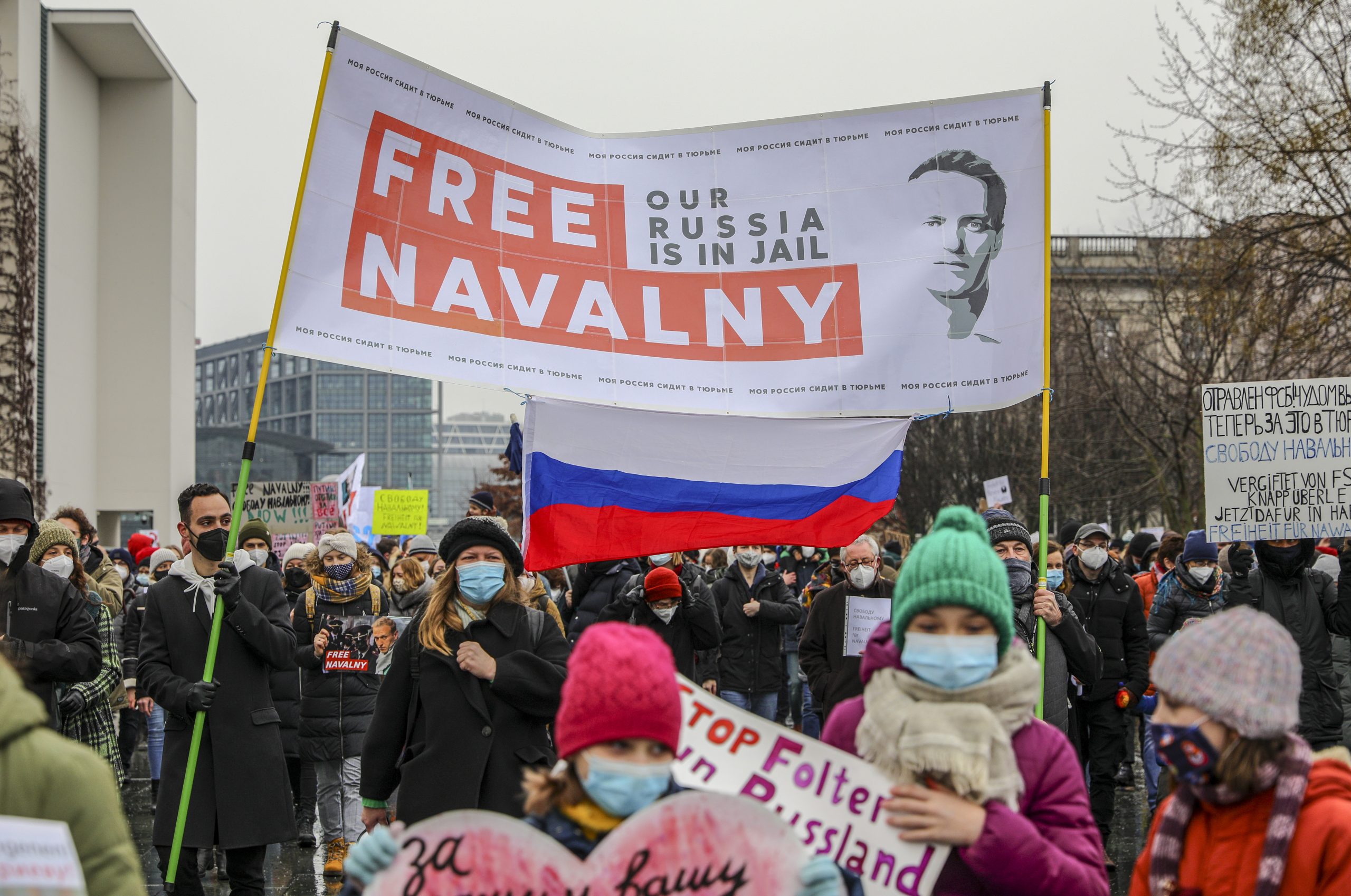Biden Administration Issues First Russia Sanctions

The Biden administration will sanction several Russian government officials over the poisoning and jailing of Russian opposition leader Alexei Navalny, senior administration officials confirmed Tuesday. The sanctions rollout will happen in coordination with the European Union.
Navalny, a rival to Russian President Vladimir Putin, was poisoned by Russian security forces last August with the nerve agent Novichok, a lethal substance considered a banned chemical weapon by the Organisation for the Prohibition of Chemical Weapons. The Kremlin denied any involvement, but the State Department attributed the attack to the Russian Federal Security Service (FSB) in December. After months of recuperation in Germany, Navalny flew home to Moscow, where he was promptly arrested for breaking the terms of his probation agreement and sentenced to nearly three years in prison, sparking protests across Russia. Last week, a Russian court transferred Navalny to the infamous penal colony no 2 (IK-2) in Vladimir region.
“We’re exercising our authorities to send a clear signal that Russia’s use of chemical weapons and violation of international human rights commitments have severe consequences,” a senior Biden administration official told reporters Tuesday. “Suffice it to say, we won’t stand by idly in the face of these human rights abuses.”
The Trump administration had prepared a sanctions package following Navlany’s poisoning but never implemented it, Politico reported.
Even the Washington Post admitted the Biden administration’s “sanctions are largely symbolic.” That’s because the U.S. has enforced a vigorous campaign of sanctions against Russia since its invasion of Ukraine in 2014, so there’s very little financial or business transactions remaining between the two nations to sanction. The outgoing Trump administration had enacted additional sanctions on Russia as recently as December 2020.
Will sanctions change how Putin behaves towards the U.S. or the E.U.? Will he treat Russian dissidents better because of these sanctions?
“I don’t think we can stop [Russian President] Putin from sending Navalny to a penal colony,” said Daniel Fried, who served as assistant secretary of State for European and Eurasian Affairs at the State Department from 2005 to 2009. “But by acting quickly now, at least it’s in Putin’s calculation that the U.S. is willing to act.”Former world chess champion and chairman of the Human Rights Foundation Garry Kasparov disagrees.
“Putin is sending a message, and this message is not to Russians, not to the opposition, but to European politicians. And it’s a simple message: ‘You told me to release Navalny; I’m not doing that. Moreover, I’m going to torture him; and you will watch while I do it. And I, Putin, will still make deals with you. Because you want to keep this dialogue open, and you invite me to have more dialogues. And you kiss my ring, my boots, and maybe some other place,'” said Kasparov in an interview with Medhi Hasan.
Comments